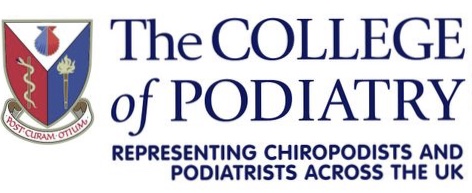The following advice has been issued to us from our governing body, the College of Podiatry. We want to ensure all patients that we are diligently adhering to all of the following, to ensure both your safety and our own.
Guidance Issued by the College of Podiatry
This guidance still applies following the PM’s announcement on 23rd March at 8.30pm and is relevant where ever you work including home visits.
As a result of COVID-19 the NHS system will be under significant strain. Podiatrists and Podiatric surgeons are key to the successful management of foot & lower limb pathology that will help avoid unnecessary visits to acute hospitals and in some cases admissions.
Supporting the management of high-risk foot patients, to help avoid complications such as ulceration and specifically infection is essential.
With this in mind we have issued the following advice to members:
1. If you show any of the signs of COVID-19 infection you must self-isolate for 7 days, if any of your household show symptoms you must self-isolate for 14 days.
2. Podiatrists in private practice, who are vulnerable themselves as outlined by the Government should follow this advice and strongly consider self-isolation.
3. All routine and non-urgent treatments and assessments should be delayed until further notice for patients with low-risk feet. Alternatively, they can be offered a remote consultation as per COP guidance. See NHS England/Improvement guidance on prioritisation within Community Health Services
4. Patients with high-risk feet or urgent need can still be treated especially if they are at risk of breakdown or infection. This would also include those that are in a vulnerable category or are over 70. Please undertake a risk assessment on each patient. Document your clinical reasoning to treat or not to treat in the patient record.
We have produced a decision tree to help members to triage their patients which can be used in conjunction with this guidance and the FDUK guidance. Make sure all decisions are recorded in the patient records.
5. When treating patients, you should be following the College of Podiatry Infection Control Standards as a minimum.
6. If a patient requires urgent Podiatry treatment but has or is suspected of having COVID-19 you must not treat them in Private Practice and you should advise them to call 111.
7. Ideally limiting distance (2 metres minimum from their face) and length of time spent with patients limits the spread of the disease. Noting when visiting someone’s house there may be others present and they should be advised not to be near you when you are treating the patient i.e. asking them to be in another room if possible.
8. If any private patient with a high-risk foot presents with an infection, engage with your local NHS podiatry service immediately. See the College of Podiatry special advisory group Foot in Diabetes UK guidance on lower limb prevention, published 23 March 2020
9. Between contacts, all surfaces and door handles should be cleaned with antibacterial and viricidal spray.
10. We would remind clinicians you should not wear your uniform to and from clinic and launder immediately on arrival home. If you do not wear a uniform then other clothing should be worn for travel and change into “work clothes” on arrival. This should then be removed at the end of the clinic and washed immediately return home.
11. Waiting room chairs should be spaced apart and it is recommended appointments with different clinicians are staggered. This means that multiple patients are not congregating in the waiting room if possible.
12. Prior to the day beginning all patients booked in should have been screened. This relates to their health, presenting complaint and risk to assess if their appointment is required.
13. When doing home visits ask other members of the family to be in another room. We will also keep appointments to as short as possible.

